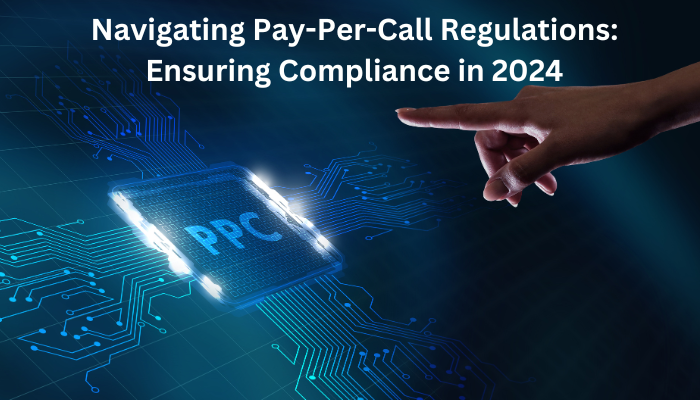
Navigating Pay-Per-Call Regulations: Ensuring Compliance in 2024
March 5, 2024 Comment off
In the dynamic landscape of digital marketing, pay-per-call advertising remains a potent tool for businesses aiming to drive sales through direct customer engagement. However, as the effectiveness of this strategy becomes increasingly evident, so does the scrutiny from regulatory bodies. The year 2024 marks a significant phase in the evolution of pay-per-call regulations, with updates and revisions aimed at protecting consumers while ensuring fair play among marketers. This article delves into the latest regulatory frameworks, including the Telephone Consumer Protection Act (TCPA) guidelines, and offers insights into maintaining compliance in this ever-evolving domain.
Understanding the Regulatory Landscape
The regulatory landscape for pay-per-call advertising is primarily governed by the TCPA, established by the Federal Communications Commission (FCC). The TCPA restricts unsolicited telemarketing calls, texts, and faxes, requiring businesses to obtain prior express written consent from consumers before reaching out to them. In 2024, the FCC has further tightened these regulations to address the growing concerns over privacy and unsolicited communications.
Moreover, the Federal Trade Commission (FTC) plays a crucial role in enforcing regulations against deceptive and unfair business practices, including those in pay-per-call advertising. The FTC’s focus has been on ensuring transparency and honesty in advertising, mandating clear disclosures about the nature of the call and any costs associated.
Key Updates in 2024
The most notable updates in 2024 revolve around enhanced consumer consent mechanisms, stricter enforcement of existing rules, and the introduction of new guidelines to tackle emerging challenges in the digital marketing space. Here are the key highlights:
- Enhanced Consent Requirements: The updated regulations emphasize the need for clear and unambiguous consent from consumers, specifying that pre-checked boxes or implied consent through inactivity are not acceptable methods of obtaining consent.
- Crackdown on Caller ID Spoofing: With the rise in technology-driven fraud, the FCC has introduced stringent measures to combat caller ID spoofing, making it mandatory for businesses to authenticate their calls using approved technologies.
- Increased Penalties for Violations: Both the FCC and FTC have announced higher fines and stricter penalties for businesses that fail to comply with the regulations, signaling a strong stance against violations.
Staying Compliant in 2024
Navigating the complex regulatory environment requires a proactive approach to compliance. Here are some strategies to ensure your pay-per-call advertising campaigns remain within legal bounds:
- Obtain Explicit Consent: Always secure prior express written consent from consumers before initiating any pay-per-call advertising. Ensure that the consent mechanism is clear, concise, and compliant with the latest guidelines.
- Maintain Detailed Records: Keep meticulous records of consent obtained from consumers, including the date, time, and method of consent. This documentation will be invaluable in the event of a compliance audit or investigation.
- Implement Caller ID Authentication: Adopt approved technologies for caller ID authentication to prevent spoofing and ensure that your calls are recognized as legitimate by consumers and regulatory bodies.
- Educate Your Team: Regularly train your marketing and sales teams on the latest regulations and compliance strategies. A well-informed team is your first line of defense against inadvertent violations.
- Monitor Third-Party Vendors: If you’re working with third-party vendors for your pay-per-call campaigns, it’s crucial to ensure that they are also compliant with the regulations. Conduct regular audits and require compliance certifications as part of your contracts.
As pay-per-call advertising continues to evolve, so does the regulatory framework that governs it. The updates in 2024 reflect a growing emphasis on consumer protection and transparency in digital marketing practices. By understanding these regulations and implementing robust compliance strategies, businesses can leverage the power of pay-per-call advertising while maintaining the trust and confidence of their customers. The key to success in this regulated environment is not just adherence to the rules but embracing the spirit of fairness and transparency that underpins them.